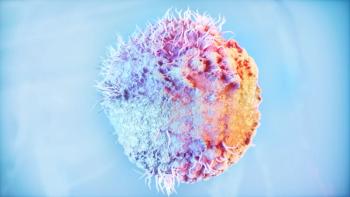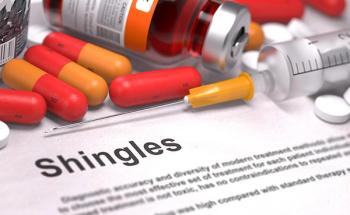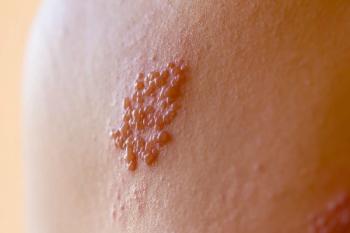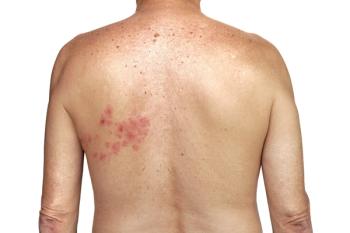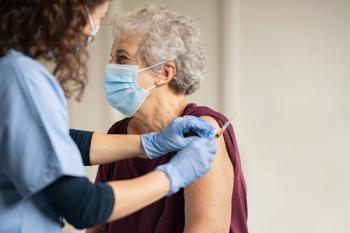
Self-Care Tips for Dealing with Shingles
Pharmacists can advise patients on easy home remedies to cope with the pain.
Shingles is a case of the
Characterized by a red, blistering rash and considerable discomfort,
The most effective approach is to begin antivirals within 3 days of the onset of the rash. There are also simple steps that shingles patients can take to care for their physical and mental well-being. Pharmacists can play a role in counseling on self-care tips for patients who are experiencing symptoms of shingles.
Handling the Rash
Shingles begins with pain, itching, or tingling of the skin, followed within a few days by the eruption of a blistering rash, usually in a stripe along 1 side of the torso or face. The sores eventually break open, releasing a fluid that contains the virus.
Pain associated with the rash can be relieved with wet compresses, calamine lotion, and colloidal oatmeal baths. A thin layer of petroleum jelly covered by a non-stick cotton bandage can keep the skin safe and prevent the virus from spreading. Loose clothing made of natural fibers can also help patients feel more comfortable by lessening pressure on the rash.
Another concern is avoiding permanent skin damage, according to Marie Jhin, MD, a board-certified dermatologist in San Francisco, California. “The shingles virus is very deep, and that’s why there’s a higher likelihood of scarring,” she told Drug Topics®. “The virus causes killing of the skin cells, or necrosis. You don’t want to touch or pick it because it’ll make the scars worse.”
Herbal Remedies
Some dietary supplements and herbal medicines are thought to help the body fight the HZ virus, as well as treat insomnia and anxiety related to the illness. The list includes:
- Melatonin
- St. John’s Wort
- Oregano, eucalyptus, tea tree, or chamomile oil
- Witch hazel
- Echinacea
- Lemon balm
- Green tea
- Essential fatty acids
Patients should be advised to consult medical providers before taking any supplements.
Diet and Physical Activity
A healthy diet is particularly important during an illness. Eating a nutritious, well-balanced variety of food helps boost the immune system and aids in healing.
Ingesting vitamins A, B12, C, and E can be beneficial for patients with shingles, as well as lysine, an amino acid that inhibits the growth of the HZ virus.
Lots of vegetables and fruits—particularly those that are green, red, orange, or yellow—along with protein-rich foods like eggs, red meat, and chicken are recommended. Cut back on foods that are high in saturated fat, sugar, and refined carbohydrates.
Stress-reducing light exercise is also advised. Suggestions include simple movements like walking, gentle stretching, or yoga.
Get Vaccinated
A course of shingles can last 2 to 6 weeks and is considered to be healed when the blisters have dried up. Once that happens, individuals who are 50 years or older can be vaccinated with recombinant zoster vaccine (RZV) (
RZV was licensed by the FDA in 2017 to help protect against shingles. It has been shown in clinical trials to be over 90% effective in preventing the disease and related complications. RZV is included on the CDC’s
Newsletter
Pharmacy practice is always changing. Stay ahead of the curve with the Drug Topics newsletter and get the latest drug information, industry trends, and patient care tips.

